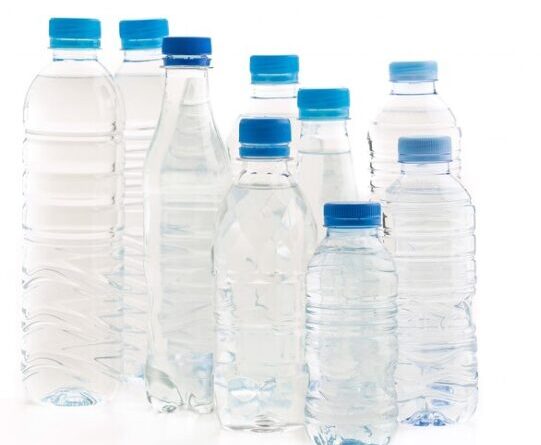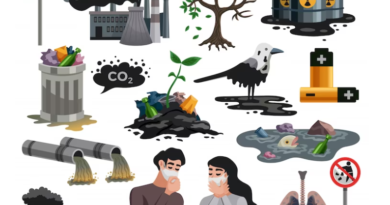5 Reasons to Skip Plastic Water Bottles
- Environmental Impact and Pollution
Plastic water bottles have become a ubiquitous part of our daily lives, but the environmental toll they take is often overlooked. One of the most pressing issues is the pollution of our oceans and waterways. The convenience of single-use plastic bottles has led to a staggering increase in plastic waste, and a significant portion of it finds its way into our natural ecosystems.
The alarming reality is that plastic bottles can take hundreds of years to decompose, releasing harmful toxins into the environment in the process. Marine life is particularly vulnerable to this pollution, as aquatic creatures may ingest or become entangled in plastic debris. This not only disrupts the delicate balance of marine ecosystems but also poses a direct threat to the health of various species.
Moreover, the label “recyclable” on plastic water bottles can be misleading. Despite the best intentions, a considerable number of these bottles do not get recycled as often as consumers believe. Inadequate recycling infrastructure, lack of awareness, and improper disposal contribute to this issue. As a result, a significant portion of plastic bottles ends up in landfills or as litter, exacerbating the environmental impact.
To truly understand the magnitude of the problem, it’s essential to recognize that the consequences of plastic pollution are not limited to the visible litter on our shores. Microplastics, tiny particles resulting from the breakdown of larger plastic items, infiltrate the air, soil, and water, posing a pervasive threat to ecosystems and human health alike.
In light of these environmental challenges, it becomes evident that reevaluating our reliance on plastic water bottles is not just a personal choice but a collective responsibility. The following sections will delve into the health risks associated with these bottles, the importance of sustainability, and practical steps individuals can take to mitigate these issues.
- Health Risks Associated with Plastic Water Bottles
While the convenience of plastic water bottles is undeniable, the potential health risks associated with their use raise important concerns. Wellness experts have shed light on various aspects of these risks, urging individuals to reconsider their choice of beverage containers.
One of the primary concerns revolves around the material used in the production of plastic bottles. Most plastic bottles are made from polyethylene terephthalate (PET), which has been found to leach harmful chemicals into the water it contains, especially when exposed to heat or sunlight. Bisphenol A (BPA) and phthalates are common examples of such chemicals, and their ingestion has been linked to a range of health issues.
BPA, in particular, is a known endocrine disruptor, meaning it can interfere with the body’s hormonal balance. Studies have suggested potential connections between BPA exposure and various health problems, including reproductive issues, developmental abnormalities, and an increased risk of certain cancers. Phthalates, another group of chemicals found in plastics, have also been associated with adverse health effects, such as hormonal disruptions and reproductive issues.
Furthermore, the reuse of plastic water bottles can exacerbate these risks. As bottles degrade over time or when exposed to heat, the likelihood of chemical leaching increases. This is especially true when bottles are left in hot environments, such as a car or under direct sunlight.
To address these health concerns, wellness experts advocate for alternative options like stainless steel or glass bottles, which are free from the harmful chemicals present in many plastics. Additionally, being mindful of how bottles are stored and avoiding prolonged exposure to heat can help reduce the risk of chemical leaching.
- Sustainability and Waste Reduction
The environmental impact of plastic water bottles extends beyond pollution; it encompasses the broader concept of sustainability and the urgent need for waste reduction. As consumers, we play a pivotal role in reshaping our habits to align with a more sustainable future.
Plastic production, from extraction to manufacturing, is an energy-intensive process that contributes significantly to carbon emissions. Choosing plastic water bottles, therefore, perpetuates our reliance on fossil fuels and exacerbates the global carbon footprint. By opting for alternatives and embracing sustainable practices, we can actively participate in mitigating the environmental consequences associated with plastic bottle production.
Sustainability goes hand in hand with waste reduction. The sheer volume of plastic bottles entering landfills annually poses a monumental challenge. Many of these bottles take centuries to decompose, and during this time, they release harmful chemicals into the surrounding soil, further contaminating the environment.
Adopting a mindset of waste reduction involves seeking alternatives that prioritize durability and reusability. Stainless steel and glass bottles, for example, offer eco-friendly alternatives that can be used repeatedly, drastically reducing the demand for single-use plastic. Investing in such alternatives not only promotes personal sustainability but also contributes to a broader cultural shift towards responsible consumerism.
The concept of a circular economy, where products are designed with recycling and reusability in mind, is gaining momentum. Manufacturers are exploring innovative materials and designs to create containers that are both practical and environmentally friendly. By supporting and demanding sustainable practices, consumers can drive positive change in the market, encouraging the adoption of eco-friendly alternatives and responsible packaging.
Educational initiatives and awareness campaigns play a crucial role in fostering a collective commitment to sustainability. By understanding the environmental impact of plastic water bottles and the benefits of adopting sustainable alternatives, individuals can make informed choices that align with their values.
- Taking Action for a Greener Planet
The environmental challenges posed by plastic water bottles are not insurmountable; in fact, they require collective action to drive positive change. Recognizing the need for individual and collective responsibility is a crucial step towards creating a greener and more sustainable planet.
- Consumer Awareness and Education:
- Increasing awareness about the environmental impact of plastic water bottles is essential. Educational campaigns and initiatives can play a pivotal role in informing the public about the consequences of single-use plastics. Understanding the lifecycle of plastic bottles, from production to disposal, empowers individuals to make informed choices.
- Advocacy for Policy Change:
- Individuals can contribute to environmental conservation by advocating for policy changes at local, regional, and national levels. Supporting and promoting legislation that addresses plastic pollution, encourages recycling, and promotes sustainable alternatives can have a far-reaching impact. Engaging with community leaders, policymakers, and environmental organizations amplifies the collective voice advocating for a greener future.
- Community Engagement and Cleanup Initiatives:
- Participating in community cleanup events is a tangible way to address the immediate impact of plastic pollution. These initiatives not only contribute to cleaner environments but also foster a sense of community and shared responsibility. Encouraging local businesses and organizations to organize or sponsor cleanup events can further amplify the impact of such initiatives.
- Promoting Responsible Manufacturing and Retail Practices:
- Consumers hold significant influence over the market. By supporting brands and businesses committed to sustainable manufacturing and retail practices, individuals can drive positive change. Choosing products with minimal packaging, promoting recyclable materials, and supporting companies with ethical and environmentally conscious practices contribute to a more sustainable market.
- Encouraging Corporate Responsibility:
- Holding corporations accountable for their environmental impact is crucial. Consumers can influence corporate behavior by supporting businesses with transparent sustainability practices and holding others accountable for reducing their plastic footprint. Public pressure can drive companies to adopt more eco-friendly packaging and production processes.
- Investing in Innovation:
- Supporting research and innovation in sustainable packaging and alternative materials is a proactive way to contribute to long-term solutions. By investing in companies and initiatives that focus on developing environmentally friendly packaging options, individuals can play a role in driving the market toward more sustainable practices.
- Significant Reduction in Plastic Usage
One impactful way to contribute to a more sustainable lifestyle is by significantly reducing the usage of plastic water bottles. This involves a conscious effort to adopt alternative practices and choices that align with eco-friendly principles.
- Embracing Reusable Alternatives:
- Transitioning to reusable alternatives such as stainless steel or glass water bottles is a simple yet powerful step. These materials are durable, long-lasting, and do not pose the same environmental hazards as plastic. Investing in a high-quality reusable bottle not only reduces reliance on single-use plastics but also saves money in the long run.
- Refillable Water Stations and Public Initiatives:
- Public spaces, workplaces, and educational institutions can play a pivotal role in encouraging the use of refillable water bottles. Installing water stations equipped with filtration systems encourages individuals to refill their reusable bottles, reducing the need for disposable options. Supporting and advocating for such initiatives can have a widespread impact on reducing plastic bottle consumption in communal settings.
- Carrying Personal Hydration Solutions:
- Cultivating the habit of carrying a personal hydration solution, whether it’s a reusable water bottle or a collapsible cup, helps individuals avoid the need for single-use plastics. Being mindful of daily hydration needs and planning ahead ensures that individuals are well-equipped with sustainable alternatives, reducing impulsive purchases of plastic bottles.
- Educational Campaigns on Plastic Reduction:
- Educational campaigns focused on the benefits of reducing plastic usage can be influential. Schools, workplaces, and community organizations can engage in awareness programs to inform individuals about the environmental impact of plastic bottles and provide practical tips on adopting a plastic-reduced lifestyle. The goal is to create a cultural shift towards embracing sustainability.
- Promoting Minimalist and Zero-Waste Lifestyles:
- Minimalist and zero-waste lifestyles emphasize intentional consumption and waste reduction. Encouraging individuals to adopt these principles involves prioritizing quality over quantity, making conscious purchasing decisions, and minimizing overall waste production. By embracing a minimalist mindset, individuals inherently reduce their dependence on disposable items, including plastic water bottles.
- Setting Personal Goals for Reduction:
- Setting personal goals for reducing plastic usage creates a sense of accountability and achievement. Individuals can establish realistic targets, such as gradually phasing out single-use plastic bottles over a specific timeframe. Tracking progress and celebrating milestones further reinforces the commitment to sustainable practices.
- Cost-Effectiveness and Financial Benefits
Beyond the environmental and health considerations, one compelling reason to skip plastic water bottles is the significant cost-effectiveness and financial benefits associated with adopting alternative, sustainable practices.
- Savings from Reusable Alternatives:
- Investing in a durable, reusable water bottle represents a one-time expense that pays off in the long run. While the initial cost might be higher than a single-use plastic bottle, the repeated purchase of disposable options quickly adds up. Choosing a reusable alternative not only contributes to waste reduction but also translates into substantial savings over time.
- Eliminating Impulse Purchases:
- Convenience often leads to impulse purchases of bottled water, especially in situations where it seems more convenient than carrying a reusable option. By proactively choosing sustainable alternatives and consistently using them, individuals can eliminate unplanned expenditures on single-use plastic bottles. This intentional approach not only benefits the environment but also contributes to personal financial discipline.
- Economic Impact of Reducing Plastic Demand:
- The collective shift towards reducing the demand for plastic water bottles has broader economic implications. As consumer preferences evolve, businesses respond by adapting their offerings. Supporting products with eco-friendly packaging and sustainable practices encourages a market shift towards more responsible options. By contributing to this demand-driven change, individuals play a role in shaping a more sustainable and environmentally conscious economy.
- Participating in Refill Programs:
- Many communities and businesses offer refill programs that allow individuals to replenish their water bottles at a fraction of the cost of purchasing a new one. Participating in such programs not only supports local initiatives but also provides a cost-effective alternative to buying bottled water regularly. This approach promotes responsible water consumption without breaking the bank.
- Bulk Purchases and Discounted Alternatives:
- Purchasing beverages in bulk or opting for discounted alternatives, such as larger containers of water, can be a cost-effective strategy. This not only reduces the per-unit cost but also minimizes packaging waste. Individuals can explore options for bulk water purchases or consider alternative beverage choices that align with sustainability goals.
- Promotional and Incentive Programs:
- Some businesses and organizations offer promotional programs or incentives for individuals who bring their reusable water bottles. Discounts, rewards, or loyalty programs encourage individuals to choose sustainable alternatives while enjoying financial benefits. Keeping an eye out for such initiatives adds an extra layer of motivation to make eco-friendly choices.
In conclusion, embracing a lifestyle that skips plastic water bottles aligns not only with environmental and health concerns but also with sound financial principles. By recognizing the long-term savings associated with reusable alternatives, individuals can make choices that benefit both their wallets and the planet. The subsequent section will provide a summary of the key insights and encourage readers to take actionable steps toward a more sustainable lifestyle.




